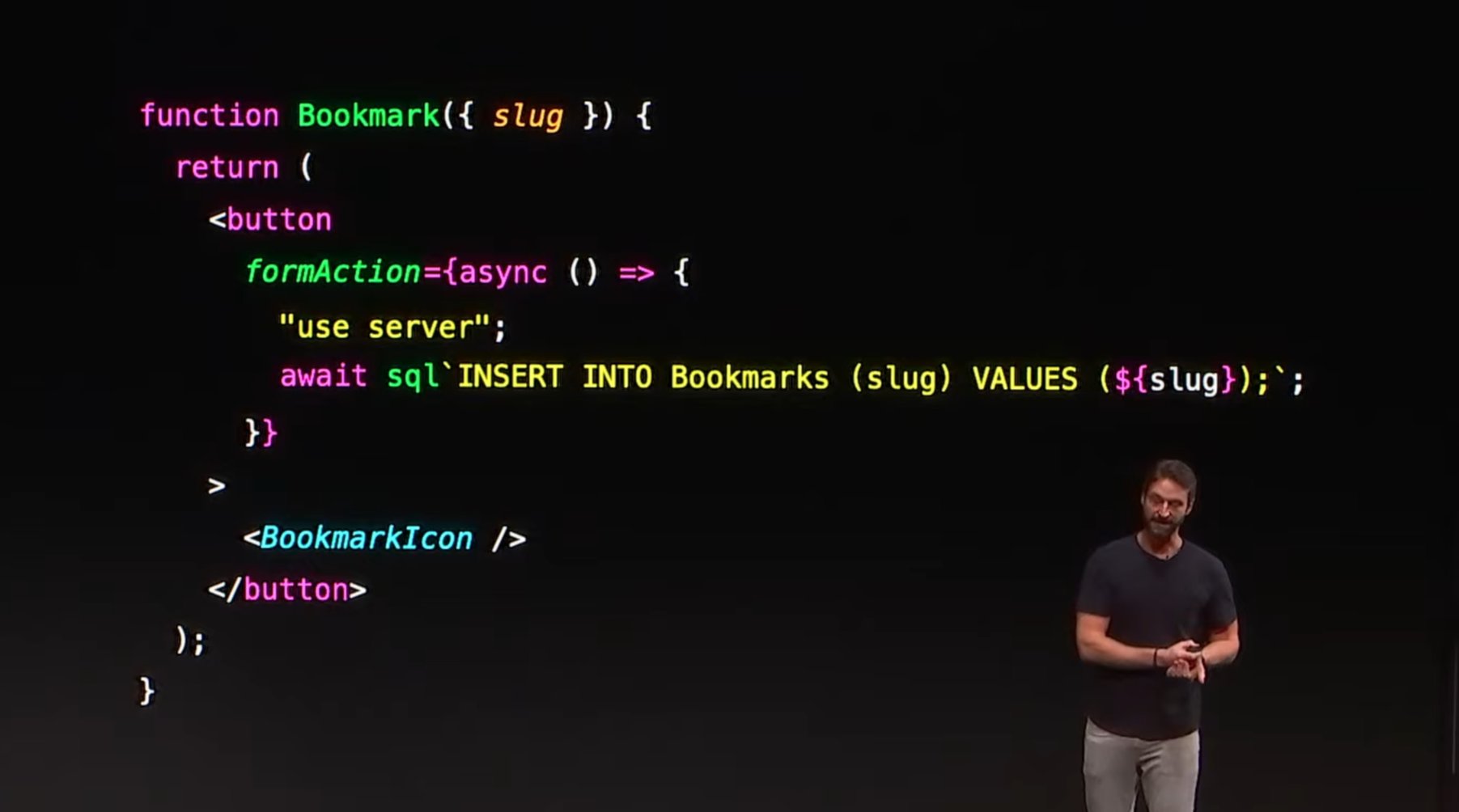In the whirlwind of social media takes following the Next.js 14 release (sorry, I’m a little late to this topic), it’s easy to get caught in the crossfire of hot takes and passionate debates. The image at the top of this page caused so much FUD that it’s almost amazing if wasn’t tragic. Whether it’s comparisons to PHP or scary SQL injection attacks, navigating these discussions as a web developer can be very overwhelming.
Is Social Media a Developer’s Friend or Foe?
The common narrative might suggest that social media is an unmitigated distraction. And no shit Sherlock, it indeed is, and there’s a more ‘black pill’ approach that implies nothing good comes from it, advocating for a complete withdrawal. This kind of trend right now with all this “cult of productivity” and “dopamine detox plans.” And I mean, if that is your way of caring for your mental health, more power to you. But this isn’t necessarily the best or only strategy, especially for those genuinely passionate about programming and web development.
Social media, despite its pitfalls, remains a prime source of information in the fast-paced tech world. Cutting it out completely might mean missing out on valuable insights, news, and community support.
Think that way. Just stopping using social media is in the end, another form of escapism. You probably aren’t gaining anything by avoiding it, the same way you would be wasting your time doom-scrolling to escape the boredom of reality in the infinitely stroll of time toward the heat death of the universe (or something).
Instead of fleeing, use social media to your advantage. It can serve as a platform for inspiration, connection with smart developers, and a gateway to the latest in the field. The key here is using social media actively and with intent as a tool to leverage your learning.
Dealing with Noise
When you encounter dismissive comparisons or security scaremongering, remember - not every tweet or hot take deserves your attention - actually, I would argue they don’t deserve any attention at all. I swear, the moment I interacted with the flipping sql-query-inside-of-a-button-server-action tweet my timeline instantly became just that godforsaken image for at least two full days. It’s worth considering the source. Where are these concerns coming from? Some well-informed people that ship this technology every day? Or some (I kid you not) Java applets developer! Because when I saw this it finally clicked: why am I reading this person’s take? Why should I care?
It’s crucial to discern valid criticism that can help you grow from the baseless noise. Since many opinions (and I dare to say, most of them) come from individuals not actively engaged with the ecosystem you are in or from those with vested interests in other technologies.
Also, this can have a bad impact on your enthusiasm for a certain topic. I saw more than once good developers that produce good content flirting with the idea of leaving the platform. I for sure felt it, and it’s not hard to imagine why when 80% of the time you see people saying that what you are learning is stupid, ugly, and smells of poop, because even as a joke and even when you understand a casual valid criticism, you are susceptible to ‘Netflix Anxiety’ when you have infinite JS frameworks, libraries, ORMs, and CSS abstractions that are “so much better” than the one you use.
Block the Noise, Not the Learning
Here’s a little secret: Blocking isn’t just for your political mismatches and crypto scammers. It’s a filter for your feed, keeping it relevant and constructive. And the best part: no one cares! You might find that it’s a bit brutal to block someone just because they do not write in your favorite flavor of colored text, but it’s okay, and no one will write any drama articles about you unfollowing Theo nor DHH will cry in his Lambo because @xXreact_engineerXx blocked him (I guess).
If you’re new to web development, or whatever other field of programming, and hungry for knowledge, sure, tailor your feed to focus on what matters to you. Learning Next.js? Immerse yourself in it.
Block distractions, not dissent. The ‘block’ button isn’t a weapon; it’s a tool. Use it to carve out your own space for learning, and don’t sweat the small stuff.
But What About Echo Chambers?
There’s a valid concern about creating an environment where you are only surrounded by people who only agree with you, which can be detrimental. Yet for someone diving deep into Next.js or another technology, this isn’t necessarily negative. It’s about focus. Just like learning mathematics, you don’t need to dive into complex theories on day one.
Remember when you were in 6th grade and Miss Ann was teaching numbers and she said, “You can’t take the square root of a negative number” — and smart-ass Laura (who watched too many Numberphile videos) was like, “Well akshuualy, if you use imaginary numbers…” And yes, she was right, but at that point, what value did that information have for you? I’m tired of seeing new web developers get anxiety about using Prisma or Dizzle because they heard Prisma “doesn’t scale.” Just pick a technology and run with it, and you will eventually understand the good, the bad, and the ugly about it. Immerse yourself in SvelteKit (or whatever you prefer) without the constant barrage of why “Ruby on Rails is so much better.”
Leveraging Positive Echo Chambers
Constructive echo chambers can facilitate learning and growth. When you’re trying to build skills in a specific area, it’s okay to block out the noise and focus on what’s relevant and constructive to your journey. For example, I really like the idea of HTMX, its philosophy, the memes. But unfortunately, I have to block them — nothing personal, but I don’t see myself shipping HTMX in the next 5 years and even though it pains me, they had to go.
Final Thoughts: Constructive Engagement
In the realm of social media, especially on platforms bustling with developers, remember to engage constructively. Block when necessary, engage with meaningful content, and always be ready to evolve your approach. Whether you’re a fan of Nuxt or Next, focus on what enhances your learning. Let your curiosity lead, and don’t let the noise burn you out. Ultimately, trust in your path and leverage social media as a tool for success, not a source of annoyance.
As a first step toward creating a better web presence, here are some of my personal favorites accounts to follow in the javascriptosphere:
- Dan “the GOAT” Abramov
- Dominik
- Dax
- Matt pocock
- Theo
- Lee Robinson
- Ethan Nisser
- Pilcrow
- Juxtopposed
- Christopher Ehrlich
- nexxel
Thank you for reading and feel free to follow or block me on twitter

